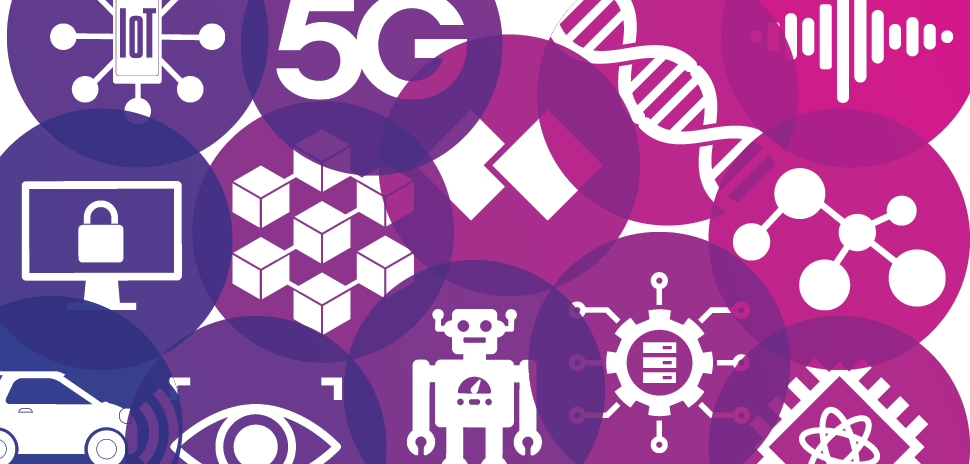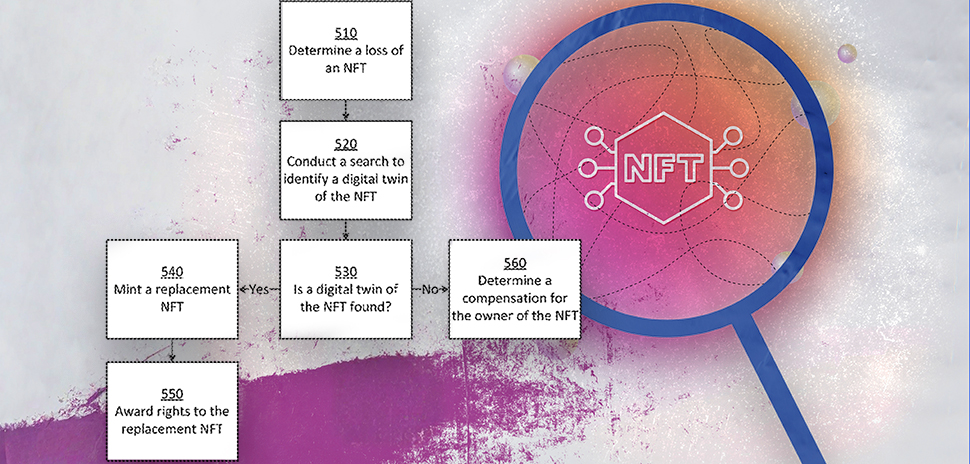Tech is booming, big-time. We saw its strength reflected in the stock market in 2020, despite a global pandemic. In a world gone virtual, it was a lifeline for businesses and people alike.
“Seemingly overnight, COVID-19 disrupted our assumptions and forced us to become more adaptable and responsive than we had previously thought possible. Comfortable plans for ‘the future’ were condensed from years into weeks,” said Bill Briggs, the global chief technology officer of Deloitte Consulting, of the acceleration of digital transformation last year. While the growth was “uncomfortable at best,” it’s driven important change.
We know the future will look vastly different from today, and technology is a critical path to our tomorrow. As our next normal plays out, emerging tech will continue to reshape how we live and work. In Dallas-Fort Worth, organizations large and small are working to meet new needs and identify rising opportunities.
Here’s a look at 14 major trends and some of the key players leading the innovation charge in the region.
AI, ML, and Big Data
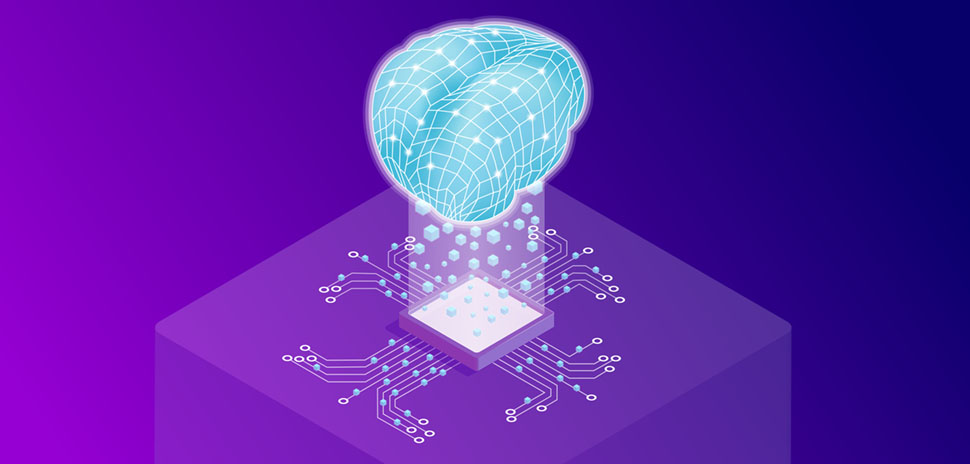
[Image: 3disometric/iStockphoto]
Intelligent machines and smart data can transform our world. This tech trio—artificial intelligence, machine learning, and data analytics—is the “glue” behind other trends on our list. Separately and together, they play a role in everything from public safety (Tyler Technologies) to financial services (Capital One, Goldman Sachs, JP Morgan, to name a few). Deloitte, in its 12th annual tech trends report, calls data “the art of the possible.” Human capacity can be augmented at scale if enterprises can move toward automation and machine-led decision making, the consultancy says. In healthcare, Pieces Technology—a startup launched in 2016, spun out of Dallas’ Parkland Health and Hospital System—uses cloud-based AI with natural language processing and doctor-supervised machine learning to interpret patient information to support healthier outcomes. Dallas-based Worlds, which emerged from stealth last year, announced a COVID breath-testing device using AI and high-tech sensors that provides nearly instant results. The device could have application for other outbreaks and diseases well beyond Covid-19. Texas-based Hypergiant Industries, with offices in Dallas and Austin, is launching a constellation of satellites with the United State Air Force that can update, collect, and share data in space—on the fly. For networking and resources in these specialized fields, a local meetup group, WiMLDS, supports and promotes women and gender minorities.
IoT and “Smart” Devices
[Image: istockphoto]
IoT, another synergistic cluster of technologies driven by 5G and fueled by data, is ushering in “Industry 4.0.” An ever-growing number of connected devices make our homes comfortable (Honeywell) and track assets across the globe (Polte). IoT and sensor-based tech has applications in every sector: industrial, healthcare, real estate, and more, according to Cisco, which offers services including remote monitoring with Industrial Asset Vision. AT&T and Microsoft also teamed on an IoT “guardian device” that connects to the cloud—bypassing public internet. IoT Texas, a monthly meetup run by Ed Hightower, recently hosted Taubyte, which emerged from stealth with its “smart computing platform.”
5G

[Photo: Rawf8/istockphoto]
Hailed as the connectivity of the future, 5G brings speed and capabilities that will boost other technologies including AI and IoT. “The orders-of-magnitude performance boost that 5G promises doesn’t happen very often,“ according to a Deloitte report last year. In DFW, you’ll find major players like AT&T, Verizon, and T-Mobile investing in the technology. Huawei notes 5G makes possible “zero-distance computing.” Earlier this year, networking pioneer DZS moved from Oakland to Plano, launching a new 5G R&D center. Ericsson also built the country’s first 5G smart factory in Lewisville, producing its first base stations that enable rapid 5G deployments. And in May, Nokia said it achieved world-record 5G speeds in its local lab.
Blockchain and DLT

Image: Zapp2Photo via iStock
Banking isn’t the only industry that could be transformed by distributed ledger tech, according to CB Insights: Watch for law enforcement, rideshare, insurance, and gaming to be impacted. Beyond its beginnings in cryptocurrency, a virtual ledger is a secure way to store, authenticate, and protect data. This year, Dallas DLT startup Hedera Hashgraph and The Coupon Bureau took the more-than-century-old coupon industry into the digital age by creating universal digital coupons. Another startup, GreenLight Credentials, was chosen to provide its blockchain platform to the Texas College Bridge. Now more than 6,000 students will be able to electronically share records directly with colleges. In cryptocurrency, Dallas startup Zabo builds tech to help financial services companies—banks, brokerage firms, fintechs—connect to customers’ crypto wallets.
Digital Twins

[Illustration: Selim Dönmez/iStock]
Experimentation that might be too expensive (or risky) in the real world is made possible by digital twin technology that creates a digital copy of a physical object, process, or environment. This year, Jacobs created a twin of a water reclamation plant in Singapore in an R&D project, and River Logic used its supply chain tech to create a twin of multinational tobacco company Philip Morris International’s global manufacturing footprint. UTD also formed the Digital Twin Health AI Consortium with plans to advance precision medicine. In Fort Worth, Bell opened its new Manufacturing Technology Center. The MTC, a “proving ground” for Future Vertical Lift aircraft, will “twin” itself to communicate operational details about its equipment and processes. In Plano, Siemens PMS, which announced a partnership with Team Penske to support its IndyCar series in 2018, has created digital twins of race cars allowing engineers to try out design concepts virtually to streamline designs and speed results
Genomics
![At the Fourth Annual iC3 Life Science Summit at UT Arlington on Oct. 10, 2017 recipient Lyda Hill will present the award. To register for the summit, visit www.bionorthtx.org. [Illustration: bestbrk/istockphoto]](https://s24806.pcdn.co/wp-content/uploads/2018/09/Bionorthconcept_970_bestbrk_istockphotovector-molecule-background-genetic-and-chemical-compounds-abstract-vector-id908258902.jpg)
[Illustration: bestbrk/istockphoto]
CRISPR has revolutionized life sciences. Gene editing and genomic breakthroughs coupled with artificial intelligence could change the face of healthcare. At the North Texas Genome Center in Arlington, scientists are unlocking human DNA through genome sequencing to create databases that would inform doctors of the right care approach. During the pandemic, the center has used its testing capabilities to run up to 500 COVID tests a day to serve the campus and community. In Bedford, Nanoscope Therapeutics is advancing gene therapy using light-sensitive molecules and light-assisted gene delivery. Its mission? Giving sight to the blind. In Irving, Caris Life Sciences tech developed a Genomic Profiling Similarity Score to compare molecular characteristics of a patient’s tumor against Caris’ extensive database. Caris’ profiling tool for tumors uses over 6,500 mathematical models in a machine-learning algorithm. Bio North Texas, a Dallas Innovates partner organization, is a hub for connections and resources in life sciences. The nonprofit organization hosts an annual event each fall, the iC3 Life Sciences Summit.
Voice Tech and NLP

[Image: IgorKirillov via istockphoto]
The field of smart voice, speech, and language processing lets machines recognize human language. From chatbots to Alexa and Siri, it’s been a game changer for how businesses interact with customers. Next-gen NLP is now being used in industrial IoT. North Texas startups are using the tech for myriad solutions: Illuma Labs offers real-time voice authentication, Briocare helps seniors “age in place” with the assistance of smart voice tech, and woman-owned SalesBoost uses patented voice tech to train teams with on-demand learning. Enterprises like Toyota see an application for the future of mobility, employing engineers who design, develop, and test voice recognition solutions.
Autonomous Vehicles
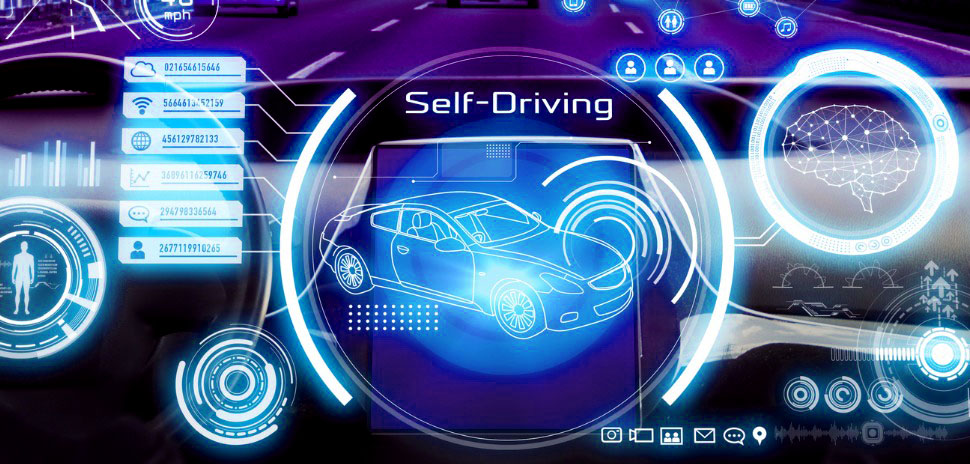
[Photo: metamorworks/istockphoto]
Autonomous vehicles—cars, trucks, aircraft—are on the way to commercial viability. In DFW, companies in the space range from Toyota to Bell to Waymo. “Autonomous activity is coming,” says Hillwood’s Bill Burton, “and DFW is well suited to benefit from it.” Driverless tech startup TuSimple recently expanded into AllianceTexas’ Mobility Innovation Zone. Earlier this month, Hillwood and Bell completed the first point-to-point unmanned aircraft delivery in North Texas—showing the future capabilities of commercial operations. In Dallas, FusionFlight had the first successful flight of its small-but-powerful autonomous drone with vertical take-off and landing called JetQuad, after three years of extensive development.
Cybersecurity

[Image: WhataWin/istockphoto]
Protecting computers from theft or damage to electronic data, software, or hardware became even more important in 2020 as work-from-home accelerated use of the cloud, which boosts file sharing and potential cyber-attacks. Trend Micro, a Japanese firm with its U.S. headquarters in Dallas, recently announced the world’s first security tool for cloud-native file storage. Other local firms include CRITICALSTART, HCL Technologies, QED Secure Solutions, and Jacobs. In education, UTD and SMU offer master’s degrees and cutting-edge intel on stopping cyber threats.
Facial Recognition and Computer Vision
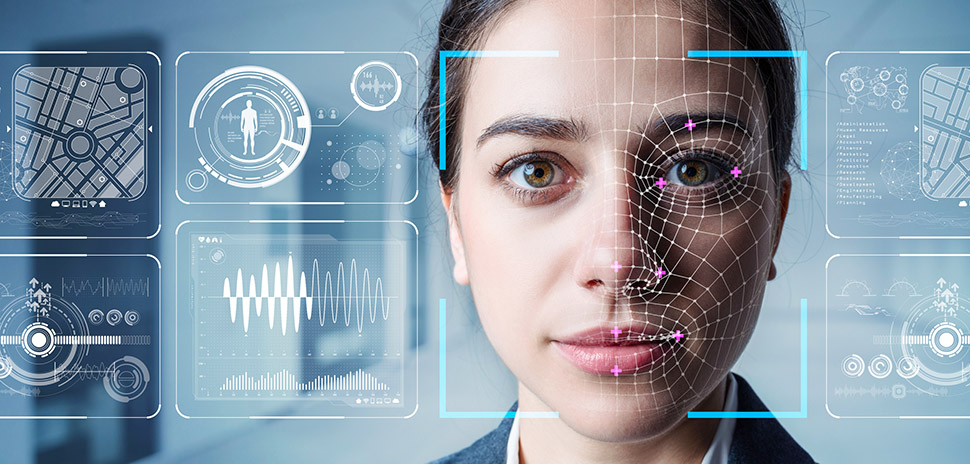
[Photo: metamorworks via iStock]
AI tech allows computers to understand and tag images, including individual faces. It’s now used in driverless cars, fintech, retail, medical diagnostics, agriculture, and more. NEC, a Japanese company with its U.S. headquarters in Irving, is an industry leader in advanced recognition systems for retail, government, and travel. Others, such as Omnigo Software, provide facial recognition for police and schools. UTD is pioneering research on racial bias in the technology. Local meetup Amplified Vision shares and creates computer vision projects.
Cobots and Robots
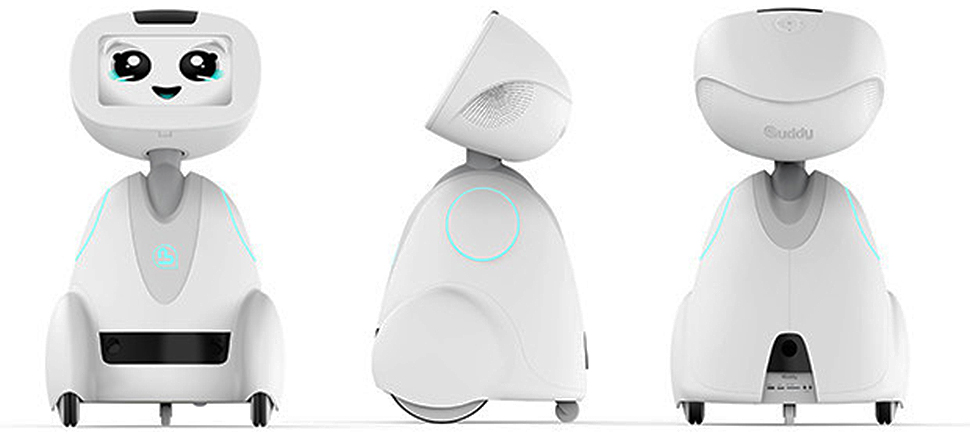
The University of Texas at Arlington has awarded four research grants. Shown is the Buddy social robot. Photo Courtesy University of Texas at Arlington
Cobots—collaborative robots, designed to work with humans in shared spaces—and robots, often used in industrial settings, are multiplying thanks in part to the pandemic. Locally, APS uses cobots to clean floors and sanitize offices. Hilti built the ceiling-hole-drilling Jaibot, and RoboKind’s robots help children with autism. AT&T worked with San Antonio-based Xenex on germ-zapping robots for hospitals. Richland Hills startup MμZ Motion is poised to provide some of the mechanical makings to collaborative robotics with its patented motion systems. In education, UT Arlington Research Institute’s Automation and Intelligent Systems efforts focus on advanced robotics, while UTD uses robots to deliver food.
RPA

[Image: KrulUA via iStock]
Coming on strong is robotic process automation, which uses computer software “robots” to do mundane and repetitive digital tasks to free up employees for more complex work. It’s used in many industries, including financial services, healthcare, and telecom. Plano-based ABIA uses RPA to streamline workflows. Its “automation anywhere” provides AI-enhanced RPA solutions. Startup Ant Brains created Krista, a conversational intelligent process RPA platform, for identity management, and more. This year, Dallas-based EPSoft RPA was used to improve COVID-related safety in the workplace.
Quantum Computing

[Illustration: DKosig/istockphoto]
Quantum computers use the principles of quantum theory to solve complex computational problems. Atos, a French company with its U.S. headquarters in Irving, is a global pioneer in building Quantum Learning Machines for commercial purposes, such as portfolio management and logistics. In education, SMU recently received a $1 million grant to advance quantum-related cybersecurity devices. A team at UT Dallas just developed a technique for atomically precise manufacturing (APM) of silicon quantum devices to scale production. Richardson-based Zyvex Labs also focuses on APM. Quantum computing has game-changing implications for cybersecurity, as well:”Math will no longer protect your data,” said cyber threat expert Doug Peckover, who is now co-founder of Kloke.ai, in a previous interview. Encryption that would normally take millions of years to crack could be done in seconds with a quantum computer, he said.
Nanotechnology and Materials Science
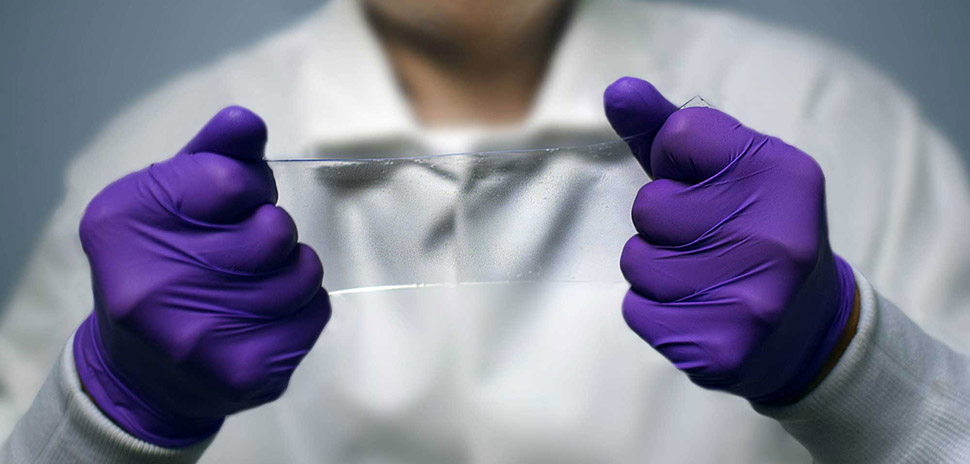
Adaptive3D focuses on creating strain-tolerant materials used for additive manufacturing. [Photo: Courtesy Adaptive3D]
Nanotechnology is the use of matter on an atomic or molecular scale for medical or industrial purposes. In 2020, Orthofix Medical got FDA clearance for its 3D-printed bone screw that uses a “nano-surface” to stabilize the joint. Coppell-based Peak Nanosystems, which closed a $25 million Series C this year, plans to expand the development of its nanolayered film used in optical lenses. OncoNano develops nanotech-enabled fluorescent probes for cancer surgery. UNT and UTA offer degrees in materials science and engineering. Alpine Advanced Materials offers a lightweight alternative to aluminum for aviation and other industries.
WHAT ARE YOU INNOVATING? Let us know.
A version of this story was originally published in Dallas Innovates 2021: The Resilience Issue.
Read it online
Our fourth annual magazine, Dallas Innovates 2021: The Resilience Issue, highlights Dallas-Fort Worth as a hub for innovation. The collective strength of the innovation ecosystem and intellectual capital in Dallas-Fort Worth is a force to be reckoned with.
![]()
Get on the list.
Dallas Innovates, every day.
Sign up to keep your eye on what’s new and next in Dallas-Fort Worth, every day.

